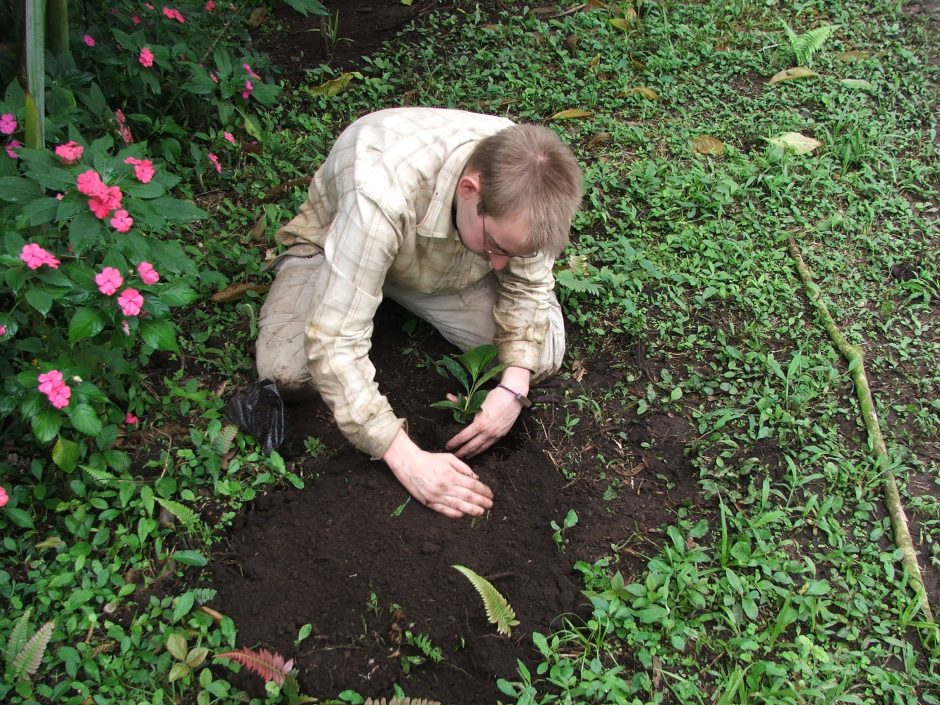COP26 gives Scotland “a platform to showcase… what’s possible”

Our Climate Champions 2020: Kit England.
Five years on from the signing of the Paris Agreement at COP21, and at the end of one of the most difficult years for climate action in recent history, in this series we celebrate five individuals that remind us of the power of the people in the climate movement.
Growing up in a little place outside of Norwich in East Anglia (UK), Kit England has always had a very strong connection with the natural environment. After pursuing his studies in law, he realised that he wasn’t really made for that world. What he really wanted was to focus on the environment, but he didn’t know where to start. So he went to South America and spent three months planting trees in the Ecuadorian cloud forest. “That was absolutely fantastic and beautiful, but it was also upsetting because while we were planting trees, we were witnessing the illegal logging going on along just across the way. As many trees as we were planting, companies were taking out more,” he recalls.
Nevertheless, Kit came home with a better idea of what career path he wanted to pursue. Today, he is a manager at the Scottish sustainability charity Sniffer and manages Climate Ready Clyde – a coalition of 15 organisations working to adapt to climate change in Glasgow City Region (GCR). Within this, he is one of the team of Clyde Rebuilt, a project supported by Climate KIC that is pioneering new approaches to building climate resilience.
Climate change will cause more frequent and intense flooding, heatwaves and coastal erosion along the Clyde river. Besides the economic damages that this will lead to, climate has a compounding effect on the health, financial stability and wellbeing of the most vulnerable populations, which will deepen social inequalities.
“Incremental changes will not be enough for what citizens are about to experience,” says Kit. The idea behind Clyde Rebuilt is thus to think about climate from a systemic point of view. “When we started at the beginning of the year, transforming the region sounded like a good idea theoretically, but we had to figure out what would need to happen in the Region to make real and tangible changes for the population.”
Although the world has thrown a range of different challenges at the Clyde Rebuilt team this year, Kit says they’re now starting to have a good idea of how they might go in achieving transformational change for the Glasgow City Region.
2020: “a rollercoaster of a year”
The COVID-19 crisis has affected everyone working on Clyde Rebuilt in one way or another. Just as the project was starting up, like many others the team was suddenly forced to work from home. Some team members had to home-school their kids, others have had COVID-19. “But in the end, I’m proud to say we’ve supported each other so everyone has risen to the occasion. We’ve harnessed digital tools to still be collaborative and creative, and we’ve set up the foundations for something that is really big and powerful for the next few years” Kit commends. This bedrock is Glasgow City Region’s first Climate Adaptation Strategy. Released in draft November 2020, it seeks to ensure the region’s economy, society and environment is not only prepared for, but continues to flourish in the face of the impacts arising from the climate.
“COVID-19 reminds us that things we think are unlikely to happen can happen and they have very big consequences,” says Kit. Experts warned of a pandemic for decades, yet we didn’t see it coming, and the same is happening with climate change. “A lot of evidence and research tells us that climate is going to have a big impact in the world, yet we haven’t fully acknowledged that it’s coming.”
For Kit, societal resilience is key to solve both global issues, as the actions that build our resilience to shocks like the COVID-19 crisis can also reduce our vulnerability to climate hazards.
Brexit was obviously another thing on everyone’s mind at Clyde Rebuilt this year, and a lot of uncertainties remain when it comes to funding of projects like this one. “But Brexit doesn’t really change the fundamental need to cooperate locally and across Europe and beyond to develop solutions to the climate crisis, and it hasn’t diluted any of our ambitions” says Kit. “The scale of what we need to achieve hasn’t changed and the Glasgow City Region still needs an ambitious approach to adaptation. We will just have to navigate the turbulence along the way.”
Looking into the future: hope for COP26
Kit recognises that a lot has changed since the Paris Agreement was signed in 2015. At that time, climate action was very negatively framed. Many people thought it would cost jobs and would require them to sacrifice their quality of life. “Over the past five years we’ve seen that transform, there is now a strong understanding by people, businesses, governments that climate action is not only good for the health of our planet but also for us. By mitigating and adapting, we’re going to create new jobs, new industries, and better-quality places to live,” concludes Kit.
The momentum coming up for COP26 – which will be hosted in Glasgow in November 2021 – is driving a lot of climate ambition in Scotland. Kit hopes that it will give the Glasgow City Region a platform to showcase to the rest of the world what’s possible. “As the host, we have to show the world what that ambition looks like. Member States pledge, and cities and regions deliver.”
“At the international level, I hope we will see a hardening of initial commitments and turning them into action. Because whilst its fantastic news that we are bending the emission curves and committing to resilience, in some sense that is the easy bits. What comes now is turning that into delivery on mitigation, adaptation and on climate finance,” he adds.
